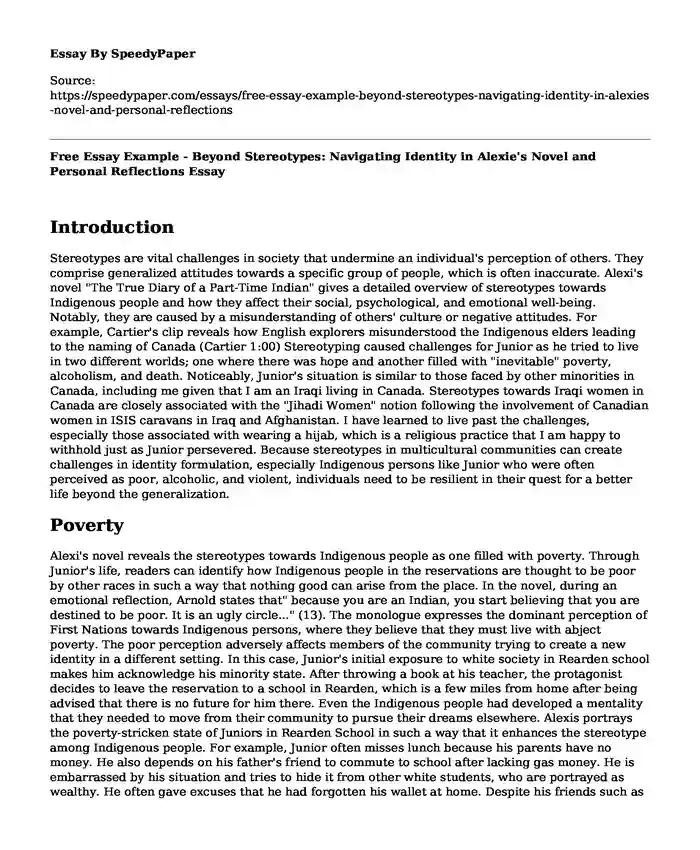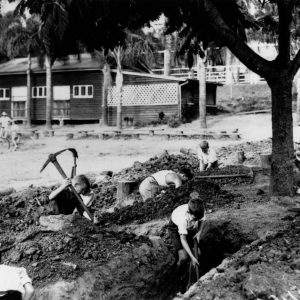
Reclaiming Southern Identity: Beyond the Stereotypes and Embracing Nuance
The American South. The very words conjure a kaleidoscope of images – sprawling plantations, sweet tea on sun-drenched porches, the echoes of blues music, and unfortunately, the lingering shadows of a troubled past. For too long, the narrative surrounding Southern identity has been dictated by simplistic stereotypes, often perpetuating harmful tropes and obscuring the rich tapestry of history, culture, and evolving perspectives that truly define the region. It’s time to move beyond the caricatures and embark on a journey of reclaiming Southern identity, embracing its complexities, and forging a future that honors both heritage and progress.
Dismantling the Myth of Monolithic Southernness
One of the biggest challenges in understanding the South is the persistent notion that it is a singular entity. The reality is far more nuanced. The South encompasses a vast geographical area, spanning diverse landscapes from the Appalachian Mountains to the Gulf Coast. It is home to bustling urban centers and sleepy rural communities, each with its own unique character. To paint the entire region with a single brushstroke is not only inaccurate but also deeply disrespectful to the multitude of experiences and identities that thrive within its borders.
Think of the vibrant Creole culture of Louisiana, distinctly different from the bluegrass heritage of Kentucky. Consider the booming tech scene in Atlanta, a stark contrast to the traditional agriculture of the Mississippi Delta. These differences are not anomalies; they are integral to the multifaceted nature of the South.
To begin reclaiming Southern identity, we must first acknowledge and celebrate this diversity. We must move away from the assumption that all Southerners are the same and instead embrace the rich spectrum of voices, perspectives, and experiences that contribute to the region’s unique character.
Beyond the Plantation: Reframing Southern History
The plantation era, while undeniably a crucial part of Southern history, has often been used as the defining narrative, overshadowing other significant aspects of the region’s past. It’s vital to acknowledge the brutality and injustice of slavery and its enduring legacy. However, focusing solely on this period risks perpetuating a distorted and incomplete picture of Southern history.
Consider the contributions of African Americans to Southern culture, music, and literature, often born out of resilience and creative expression in the face of adversity. Explore the stories of the countless unsung heroes who fought for civil rights and equality. Learn about the rich traditions of Indigenous communities who have called the South home for centuries.
By expanding our understanding of Southern history beyond the confines of the plantation, we can gain a more complete and accurate appreciation of the region’s past and present. This includes acknowledging difficult truths while celebrating the resilience and ingenuity of all who have contributed to the Southern story.
Modern South: Progress and Challenges
The South is not a static relic of the past. It is a dynamic and evolving region grappling with the challenges of the 21st century. While deeply rooted in tradition, the South is also a hotbed of innovation, creativity, and social change.
From the burgeoning film industry in Georgia to the vibrant music scene in Nashville, the South is experiencing a cultural renaissance. Cities like Austin, Charlotte, and Raleigh are attracting young professionals and entrepreneurs, fueling economic growth and diversification.
However, the South also faces significant challenges. Issues such as poverty, inequality, and environmental degradation continue to plague many communities. The region must address these challenges head-on while preserving its unique cultural heritage. Reclaiming Southern identity also means confronting current issues and working towards a more just and equitable future for all.
Reclaiming the Narrative: Defining Southern Identity on Our Own Terms
Ultimately, reclaiming Southern identity is about taking control of the narrative and defining what it means to be Southern on our own terms. It’s about embracing the complexities and contradictions of the region, acknowledging its past, and working towards a more inclusive and equitable future.
This means:
- Challenging Stereotypes: Actively combatting harmful stereotypes and promoting a more nuanced understanding of Southern culture.
- Amplifying Diverse Voices: Creating platforms for marginalized voices to be heard and celebrated.
- Preserving Cultural Heritage: Protecting and promoting the unique traditions and art forms that define the South.
- Promoting Social Justice: Working towards a more just and equitable society for all Southerners.
- Embracing Progress: Welcoming innovation and change while remaining true to our roots.
Reclaiming Southern identity is not about erasing the past but about learning from it, building on its strengths, and creating a future that reflects the best of what the South has to offer. It’s about moving beyond the stereotypes and embracing the rich tapestry of history, culture, and evolving perspectives that truly define the region. It’s about finding pride in our heritage while actively working to create a more inclusive and just South for generations to come.
Key Aspects of Southern Identity: A Simplified Overview
| Aspect | Stereotype | Nuance |
|---|---|---|
| History | Confederate glorification | Acknowledging slavery, celebrating civil rights, Indigenous heritage. |
| Culture | Simple, unsophisticated | Rich music, literature, art, cuisine, & diverse traditions. |
| People | Homogeneous, conservative | Diverse backgrounds, evolving political views, urban/rural differences. |
| Landscape | Plantations and cotton fields | Mountains, coasts, cities, and diverse ecosystems. |
| Progress | Resistant to change | Rapid growth in technology, arts, and social movements. |
This table, while simplified, illustrates the shift from common stereotypes to a more nuanced understanding of Southern identity. It highlights the importance of moving beyond simplistic portrayals and embracing the multifaceted nature of the region.

Additional Information
Reclaiming Southern Identity: Beyond the Stereotypes – A Deeper Dive
The endeavor of reclaiming Southern identity, as discussed in the main article, is far more complex than simply rejecting negative stereotypes. It involves a multi-faceted engagement with history, culture, and socio-political landscapes, demanding a critical and nuanced approach. This analysis delves deeper into the complexities of this reclamation process, examining its motivations, challenges, and potential for positive social change.
The Urgency of Reclaiming: Contextualizing the Drive
The urgency surrounding reclaiming Southern identity stems from several key factors:
- Historical Trauma and Misrepresentation: The South’s history is deeply intertwined with slavery, segregation, and the Confederacy. The perpetuation of stereotypical narratives, often rooted in racist ideologies, has resulted in a profound sense of historical trauma and misrepresentation. Examples like the romanticized portrayal of the antebellum South in popular culture (e.g., Gone With the Wind) actively obscures the brutal realities of slavery and the suffering of enslaved people. This leads to a desire to redefine the Southern narrative, acknowledging the painful past while also highlighting the resilience and contributions of diverse communities.
- Socioeconomic Disparities: The South continues to grapple with significant socioeconomic disparities, particularly in areas like education, healthcare, and economic opportunity. These disparities are often rooted in historical inequalities and exacerbated by contemporary political choices. Reclaiming Southern identity can be seen as a means to advocate for policies that address these disparities and promote a more equitable future. For instance, grassroots organizations working to expand access to affordable healthcare in rural Southern communities are actively challenging the stereotype of the South as uniformly resistant to progressive social policies.
- Cultural Richness and Diversity: Despite the prevalence of stereotypical portrayals, the South boasts a rich and diverse cultural heritage, shaped by the contributions of African Americans, European immigrants, indigenous communities, and other groups. This cultural richness encompasses music (blues, jazz, country, gospel), literature (William Faulkner, Toni Morrison, Zora Neale Hurston), cuisine (soul food, Cajun, Creole), and various forms of artistic expression. Reclaiming Southern identity aims to celebrate this diversity and showcase the unique cultural contributions of the region. For example, the resurgence of interest in traditional crafts and folk arts, particularly those practiced by marginalized communities, demonstrates a growing appreciation for the South’s complex cultural tapestry.
The Challenges of Reclamation: Navigating Contested Terrain
Reclaiming Southern identity is not without its challenges. These include:
- The Confederate Legacy: The Confederate flag and monuments remain highly divisive symbols, representing for some a celebration of Southern heritage and for others a painful reminder of slavery and white supremacy. Statistics consistently show a stark racial divide in perspectives on Confederate symbols, with a significantly higher percentage of white Southerners viewing them favorably compared to Black Southerners. Navigating this legacy requires open and honest dialogue about the history of the Confederacy and its impact on contemporary society. Successful models of reclamation involve contextualizing Confederate monuments with historical markers that acknowledge the perspectives of enslaved people and victims of racial violence.
- Internal Divisions: The South is not a monolithic entity. There are significant regional, racial, and class divisions that can complicate the process of reclaiming a shared identity. For example, the political landscape of the South is increasingly polarized, with urban areas tending to lean Democratic and rural areas remaining predominantly Republican. Overcoming these divisions requires building bridges across different communities and fostering a sense of shared purpose.
- Resistance to Change: Some individuals and groups may resist efforts to challenge traditional narratives and promote a more inclusive understanding of Southern identity. This resistance can manifest in various forms, including denial of historical injustices, perpetuation of stereotypes, and opposition to social and political reforms. Overcoming this resistance requires persistent advocacy, education, and coalition-building.
Strategies for Meaningful Reclamation: Building a More Just and Inclusive Future
Meaningful reclamation of Southern identity requires a proactive and intentional approach. Key strategies include:
- Promoting Historical Literacy: Education is crucial for fostering a more nuanced understanding of Southern history. This includes teaching about the history of slavery, segregation, and the Civil Rights Movement, as well as the contributions of African Americans, Native Americans, and other marginalized groups. Museums, historical societies, and educational institutions can play a vital role in promoting historical literacy.
- Elevating Marginalized Voices: Centering the voices and experiences of marginalized communities is essential for creating a more inclusive narrative of Southern identity. This includes providing platforms for African American writers, artists, and activists to share their stories and perspectives. The success of initiatives like the Equal Justice Initiative’s Legacy Museum and National Memorial for Peace and Justice in Montgomery, Alabama, demonstrates the power of truth-telling and memorialization in promoting racial reconciliation.
- Supporting Community-Based Initiatives: Grassroots organizations and community-based initiatives are often at the forefront of efforts to reclaim Southern identity and promote social change. These initiatives can focus on issues such as environmental justice, economic development, and education reform. For example, organizations working to revitalize historically Black neighborhoods in Southern cities are preserving cultural heritage and empowering local communities.
- Engaging in Difficult Conversations: Addressing the complex and often uncomfortable aspects of Southern history requires open and honest dialogue. This includes engaging in conversations about race, class, and privilege. Facilitated dialogues, community forums, and truth and reconciliation commissions can provide safe spaces for these conversations to take place.
- Reclaiming Symbols of Southern Pride: Redefining symbols of Southern pride can be a powerful way to challenge negative stereotypes and promote a more inclusive understanding of Southern identity. This includes celebrating the region’s rich cultural heritage and advocating for policies that promote social and economic justice. Organizations dedicated to fostering civic engagement in the South are working to reclaim Southern identity by promoting a more inclusive and equitable vision for the region’s future.
Conclusion: A Continuing Journey
Reclaiming Southern identity is an ongoing journey, fraught with challenges but also full of potential. By acknowledging the complexities of the past, celebrating the diversity of the present, and working towards a more just and equitable future, the South can create a new narrative that reflects the true spirit and potential of its people. It requires critical self-reflection, a willingness to confront uncomfortable truths, and a commitment to building a more inclusive and equitable society for all. This endeavor is not just about reclaiming a regional identity; it’s about building a more just and humane world.






